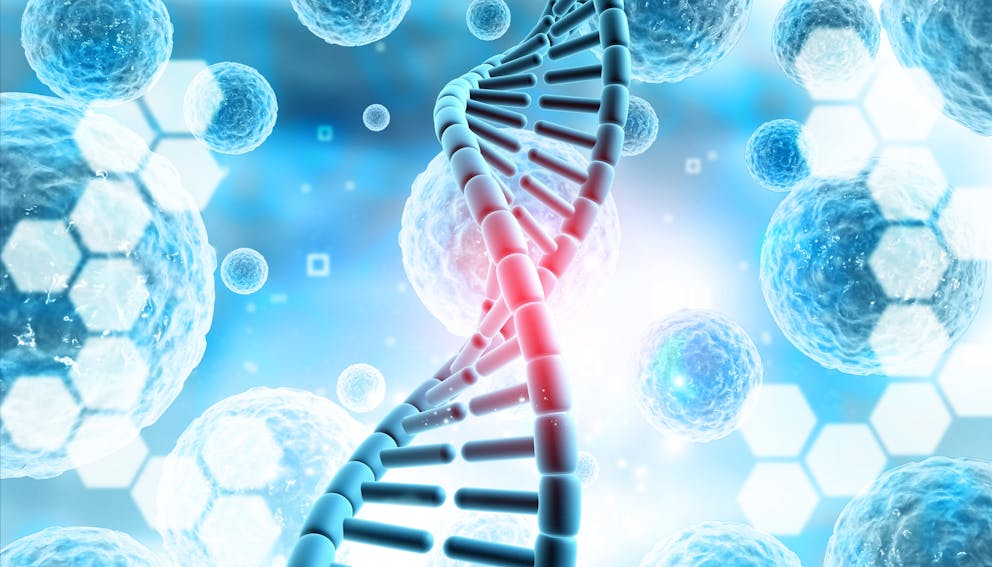Dr. Eric Berg
It’s well known that magnesium is an essential mineral needed for optimal muscle function, restful sleep, bone health, and energy production. However, magnesium may play a much more profound role in overall health.
Emerging evidence suggests that magnesium helps protect DNA, which can reduce the risk of premature aging and serious health issues, including Alzheimer's disease, cancer, and diabetes.
These findings highlight the importance of addressing magnesium deficiencies through dietary changes or supplementation as a key strategy in preventing major health issues.

Is magnesium the key to health and longevity?
Groundbreaking evidence published in the European Journal of Nutrition suggests that magnesium may significantly reduce the risk of DNA damage and chronic degenerative disorders.
The study analyzed blood samples from middle-aged adults and found a strong inverse association between blood magnesium levels and DNA damage biomarkers.
This indicates that higher blood magnesium levels may protect from DNA strand breaks and mutations, helping preserve genetic integrity and reduce the risk of disease and accelerated aging.
The authors summarized, “Plasma magnesium level was independently and inversely associated with DNA damage biomarkers even after adjusting for covariates such as gender and age. This indicates that higher magnesium levels in the blood may protect the genome from endogenous genotoxic events.”
Magnesium's role in preventing DNA damage
Magnesium is essential for countless cellular and metabolic pathways, and more than 600 enzymes require it as a cofactor.
A magnesium deficiency can disrupt these biochemical pathways, increasing the risk of poor cellular functioning and improper DNA repair, highlighting magnesium's critical role in maintaining genomic stability.
In addition, magnesium is essential for mitochondrial function and energy production. Low magnesium levels affect mitochondrial health, which can lead to an increased production of reactive oxygen species within cells. These highly unstable metabolic by-products can cause oxidative damage to cellular organelles and genetic material.
Over time, DNA damage can accumulate and begin to disrupt normal cellular functions, linked to an elevated risk of cancer and age-related disorders.
Magnesium deficiency: a hidden health crisis?
Research published in Advances in Nutrition declares magnesium a shortfall nutrient as more than 50 percent of Americans don’t consume enough magnesium-rich foods to maintain healthy levels.
In addition, it’s estimated that only around 35 percent of dietary magnesium is absorbed, making it challenging to sustain optimal magnesium stores even for individuals who regularly consume magnesium-rich foods.
This widespread risk of deficiency may contribute to a greater incidence of chronic health conditions, such as cardiovascular disease, diabetes, and neurodegenerative disorders.
Implications for chronic disease prevention
Addressing magnesium deficiency through dietary adjustments and supplementation may be crucial in promoting optimal cellular function and mitigating the risks of chronic diseases.
By prioritizing magnesium-rich foods, you can potentially help protect your genetic material from damage and promote healthy aging.
Some of the best dietary sources of magnesium include:
- Leafy green vegetables
- Nuts
- Seeds
- Avocados
- Dark chocolate
- Salmon
- Mackerel
Grains such as rice, wheat, oats, and buckwheat are also often recommended as valuable sources of magnesium.
However, grains contain phytic acid, a compound classified as an antinutrient, as it can bind to magnesium and other essential minerals. This significantly reduces magnesium absorption and contributes to deficiency.
Factors such as aging, gastrointestinal disorders, and using medications such as proton pump inhibitors (PPIs), antacids, or diuretics can also increase the risk of magnesium deficiency despite adequate dietary intake.
Why the right magnesium supplement matters
Magnesium supplementation can offer a convenient way to address and prevent deficiencies, thereby promoting cellular health and potentially reducing the risk of DNA damage and associated health problems.
Unfortunately, not all magnesium supplements are created equal, and certain elemental forms of this mineral are more effective and better absorbed than others.
Magnesium glycinate, threonate, and orotate are among the best types of magnesium as they are highly bioavailable and have a lower risk of side effects.
In contrast, magnesium carbonate, oxide, and hydroxide are poorly absorbed and linked to an increased risk of adverse effects, including diarrhea, nausea, and abdominal pain.

No comments:
Post a Comment